Summit on BME Leadership in HE
This event was hosted by AdvanceHE, the new agency that was formed recently to include the Leadership Foundation for Higher Education, the Higher Education Academy and the Equality Challenge Unit.
Wonkhe have pointed out that:
- “So far only 45 out of 167 higher education institutions have signed the Advance HE Race Equality Charter’s principles [BU is one of them]. Of those 45, only nine have actually been formally recognised for demonstrating evidence of their commitment. The first wave of eight 2015 Charter award holders are reapplying for accreditation this summer.”
Baroness Valerie Amos spoke at this event on 16th May and also wrote in the Guardian. about leadership.
- “There are deep-seated prejudices and stereotypes which need to be overcome. University leaders need to acknowledge that we are not doing enough. The UK has some of the best universities in the world – but what is the point of that if we are not offering real equality of opportunity?”
Also in the Guardian on Wednesday was an article by Shakira Martin, President of the NUS, who spoke at the same event.
- “This year has also seen black students fighting back, rising up, taking to the streets, starting campaigns and writing powerful letters, like the three brave students from the University of Exeter, to say enough is enough. However, the onus should not be on them to tackle discrimination. The sector is pretty good at sharing best practice. This is one area where distinct, hardline initiatives are needed in abundance. Institutions must be bold. It only takes one or two to get serious about dealing with the issue head-on and others will follow suit.”
Launch of UKRI
UK research and Innovation have published its Strategic Prospectus which create a research and innovation system that is fit for the future and equipped to tackle the environmental, social and economic challenges of the 21st Century. As the press release outlines, the prospectus is the start of this process and over the next 12 months UKRI and its councils will continue to engage with their communities, the wider public, and undertake research, to further develop individual strategic delivery plans. Please see the following links for more information:
UKRI will work with its partners to push the frontiers of human knowledge, deliver economic prosperity, and create social and cultural impact. It describes four underpinning areas key to delivering this:
- Leading talent – nurturing the pipeline of current and future talent
- A trusted and diverse system – driving a culture of equality, diversity and inclusivity and promoting the highest standards of research, collaboration and integrity
- Global Britain – identifying and supporting the best opportunities for international collaboration
- Infrastructure – delivering internationally-competitive infrastructure to ensure we have the best facilities to foster innovation and conduct research
Over the coming months, UKRI will be conducting research and consultation to further develop its approach to working with others and to answer a series of big questions. These include how to grow the economy across different regions of the UK whilst continuing to expand our existing world-leading excellence; how to reduce the gap in productivity and the best approaches to developing talent across the diverse population of the UK, providing the skills needs of the future.
UKRI Chief Executive Professor Sir Mark Walport said:
- “Our Strategic Prospectus has been developed to ensure that everyone in society benefits from the knowledge, innovation, talent and ideas generated from our funding. UK Research and Innovation builds on the excellence of our individual councils. We will work collaboratively with researchers, innovators and entrepreneurs to develop the most exciting ideas and innovative technologies and bring these to fruition. Delivering this success will take commitment, a collective effort and new, ambitious ways of working.”
Vision: • We will push the frontiers of human knowledge and understanding. • We will deliver economic impact • We will create social and cultural impact by supporting society to become enriched, healthier, more resilient and sustainable.
Values: Collaboration, Excellence, Innovation, Integrity
- On talent: We will:
- Seek to increase skills at all levels, to maintain a broad disciplinary skills base, and work with partners to identify key skills gaps and build capacity. We will support vocational education and apprenticeships alongside more traditional pathways through higher education. • Support individuals to move between business and research careers, creating opportunities to develop careers in ways that stimulate creativity and innovation.
- Back universities to develop vibrant research environments which act as magnets to attract and nurture talent.
- Support multidisciplinary teams when these are needed to conduct research and innovation. This will require the creation of more highly valued roles for technologists, data scientists and others for the teams that are needed to tackle tough challenges.
- Promote continuing professional development, accompanied by lifelong learning and training throughout the careers of researchers and innovators.
- On the system: We will:
- Drive change, both as an employer and through our research and innovation funding. • Embed equality, diversity and inclusion at all levels and in all that we do.
- Seek to create a culture that facilitates and safeguards the opportunities for all to be respected and treated fairly.
- Take an evidence-based approach, commissioning and funding research and evaluations to understand the issues, what interventions work – and what does not work. • Collaborate and engage with partners nationally and internationally, to gather evidence and ideas, to help catalyse and facilitate change.
- On Research culture: We will prioritise four related areas:
- Research and innovation ethics – norms that define acceptable behaviour and practice
- Conduct – the use of honest and verifiable methods in proposing, performing, and evaluating research
- Reproducibility – the ability to achieve commensurate results when an experiment is conducted by an independent researcher under similar conditions
- Analysis of funding mechanisms and metrics and their impact on culture
- On transparency: We will:
- Identify the highest value areas where UKRI can drive improvements to the open research system in the near to mid-term.
- Build on the expertise in Councils and the wider community to identify technological innovations that could transform open research.
- Engage with Government and external groups to ensure the UK continues to play a leading role in the international open research movement
Haldane Principle:
- “(page 9): 3 In engaging with UKRI, BEIS will have regard to the Haldane principle …..The HER Act defines more precisely how the Haldane principle will apply with respect to UKRI. For the science and humanities councils…. section 103 sets out that the Haldane principle is the principle that decisions on individual research proposals are best taken following an evaluation of the quality and likely impact of the proposals (such as a peer review process). Section 97 provides equivalent measures for the activities of Research England. Strategic, long term decision making requires input from both subject matter experts and central government, as explained in the written ministerial statement. This includes investment in large capital infrastructure and research treaties. The Haldane principle does not apply to the government’s funding of innovation and the activities of Innovate UK.”
Immigration
From Dods, referring to an article in Politico: May intervenes to speed up new UK immigration plan. The Government have purportedly brought forward plans to publish the Immigration White Paper before the summer recess. This new timetable, if accurate, means the White Paper will be published before the long-awaited Migration Advisory Committee’s report into the economics of immigration, due to be published in September. Formerly, Home Office officials had said this report would inform Government immigration policy, justifying the long delay in publishing the White Paper.
More definitely, the Commons Science and Technology Select Committee have announced a new inquiry into “an immigration system that works for science and innovation”.
- “The Committee published its report on “Brexit, Science and Innovation” in March, and has recently received the Government’s response. The report welcomed the Prime Minister’s call for a “far-reaching pact” with the EU on science and innovation. We had recommended that an early deal for science—including on the ‘people’ element—could set a positive tone for the rest of the trade negotiations, given the mutual benefits of cooperation on science and innovation for the UK and the EU. The Committee now intends to produce its own proposals for an immigration system that works for science and innovation, with the aim of completing this in advance of the MAC’s report later this year.”
The Committee Chair, Rt Hon Norman Lamb MP, said:
- “It was disappointing that the Government doesn’t see the need to secure an early science pact, and assumes that scientists are happy to just wait and see what’s in the Immigration Bill next year. We’re going to roll up our sleeves now and set out our proposals for an immigration system that works for the science and innovation sector.”
- “Today’s revelation that more than 1,600 IT specialists and engineers offered jobs in the UK were denied visas between December and March sends the message that the UK is not interested in welcoming science talent at the moment. The Government needs to work quickly to correct that impression.
The Committee will draw on the submissions to its previous Brexit inquiry and the sector’s submissions to the MAC to construct its proposals for the immigration system, but further input to this process is welcome on the following points:
- If an early deal for science and innovation could be negotiated, what specifically should it to contain in relation to immigration rules and movement of people involved with science and innovation?
- What are the specific career needs of scientists in relation to movement of people, both in terms of attracting and retaining the people the UK needs and supporting the research that they do?
- What aspects of the ‘people’ element need to be negotiated with the EU-27, as opposed to being simply decided on by the Government?
- On what timescale is clarity needed in relation to future immigration rules in order to support science and innovation in the UK?
The deadline for submissions is Wednesday 6 June 2018 – please contact policy@bournemouth.ac.uk if you would like to submit evidence to this inquiry.
Post-18 review
The Secretary of State for Education has written to the Chair of the Education Committee about the HE review:
- “You asked for clarification on how the Review of Post-18 Education and Funding will inform my department’s preparations for the next spending review, particularly with regard to further education. The Spending Review 2019 will provide an opportunity to set budgets and fund government priorities across the whole DfE remit from 2020-21 onwards. The Department’s preparation for the Spending Review will include consideration of any recommendations from the Review of Post-18 Education and Funding.”
Policy impact
I presented this week on engaging with policy makers, part of a regular series of workshops that we run at BU for academic and professional support staff. Read my blog here.
And while we’re talking about the “what”…did you know that government departments publish their areas of research interest? This is a guide to where research funds might go, and is useful if you are thinking about policy impact. The collection is here, and four new ones were added on Thursday:
The DCMS one says “It is designed to encourage researchers and academics to explore those topics that could be of benefit to DCMS and our sectors and act as a starting point for future collaboration.”
Digital Health, Life Sciences
The government have published the annual report from the Bioscience and health technology sector database for 2017 – there are some interesting graphics and context for the strategic investment areas:
There is scope for an argument about focus on place for the industrial strategy here – the detailed maps in the main report highlight the weakness in the South West but opportunity for Bournemouth given our location almost in the South East and close to London.
And out on Monday, this report from the National Centre for Universities and Business:
- “To compete, the UK must ensure that its universities are as embedded into the digital health knowledge exchange process as those in California and Massachusetts. Furthermore, as the UK cannot outspend the US, our systems for procurement and deployment into the NHS, and the high quality of research in UK universities, must be connected more effectively in the ecosystem. We noted earlier that patients and consumers are willing to share their data for research – although there is a sensible debate about opt-in versus opt-out, and patient control over what might be shared – but there remain significant standardisation challenges across primary and secondary care systems that must be overcome to drive research excellence.”
Postgraduate loans and numbers
New data from the Office for Students shows an increase in postgraduate masters’ student numbers since the introduction of the postgraduate masters’ loan. · Read the news item in full on the Office for Students website.
The effect of postgraduate loans data – key findings (the survey uses HESA data)
- In 2016-17 postgraduate masters’ loans of up to £10,000 were introduced to assist students with tuition fees and living costs.
- In 2016-17 there was an overall increase in entrant numbers but only for students to eligible courses. The number for non-eligible courses decreased. Single-year transition rates straight from undergraduate degree to postgraduate study saw a similar increase in students to eligible courses.
- Age: The largest increase in entrant numbers on eligible courses and increase in transition rates have been for students aged 25 and under. Overall, the age profile of entrants to postgraduate study has changed slightly, with a larger proportion of younger students than in previous years.
- Gender: Male and female entrant numbers on eligible courses both show an increase. Similarly, there has been no difference between the genders in transition rates or loan take-up.
- Ethnicity: There has been a larger increase in entrant numbers on eligible courses for black students than for white students, which has resulted in a change in the ethnic composition of the postgraduate entrant population. The proportion of postgraduate entrants on eligible courses who are black has increased from 8 per cent in 2015-16 to 11 per cent in 2016-17.
- Disability: Disabled students comprised 12 per cent of the entrant population on eligible courses in 2015-16. However this has increased to 15 per cent in 2016-17.
- Educational disadvantage: The proportional increase in entrant numbers on eligible courses, and increases in one-year transition rates, has been greatest for students from the lowest-participation areas. This means that those from the lowest undergraduate participation areas are now more likely to enter postgraduate study immediately after undergraduate study than those from the highest participation areas.
- The proportion of students who were eligible for a loan and took one out was greatest among:
-
- students aged 25 and under on entry
- black students
- students who declared a disability
- students from lowest-participation areas.
- For all student groups, the proportion of graduates able to realise their intention to continue postgraduate studies has increased. However, the increase was greatest among:
-
- students aged 26 and over
- black students
- students who declared a disability
- students from lowest-participation areas.
The Intentions After Graduation Survey data., key points:
Between January and April 2017 final year undergraduates on first degree courses were invited to answer the survey about their intentions after graduation. Overall, nearly 83,000 final year students from 268 UK higher education providers that take part in the National Student Survey (NSS) responded to the Intentions After Graduation Survey. This analysis focuses on almost 70,000 students at 238 English providers.
While the students’ most frequent intention within six months from graduation is to ‘look for a job’ (around 50 per cent of respondents each year), there is a clear upward trend in the percentage of students who intend to undertake postgraduate (PG) study. Among 2016-17 respondents, more than one student out of five selected ‘further study’ as their intention after graduation.
For all students, the intention to continue studying becomes greater further in the future (i.e. more than six months after graduation). Of students who are certain or likely to study at PG level in the future, 55 per cent intend to look for a job or have already been offered a job when surveyed.
In terms of motivation, almost 70 per cent of the students who intend or are likely to continue studying selected ‘interest in the subject’ as a reason for their intention. Only 35 per cent of the students would continue to study, among other reasons, to get a better job or to open up more career choices.
Female students are more likely to intend to continue to study than male students, as are black students relative to other ethnic groups. Also, young students from the lowest-participation areas are more likely to state an intention to continue study relative to those from higher-participation areas
Other news
The Office for Students is recruiting for its committees – provider risk, quality assessment and risk and audit.
Care leavers will be boosted by a new £1,000 bursary payment if they choose to do an apprenticeship from August 2018, the Government announced on 17 May
Subscribe!
To subscribe to the weekly policy update simply email policy@bournemouth.ac.uk
JANE FORSTER | SARAH CARTER
Policy Advisor Policy & Public Affairs Officer
Follow: @PolicyBU on Twitter | policy@bournemouth.ac.uk
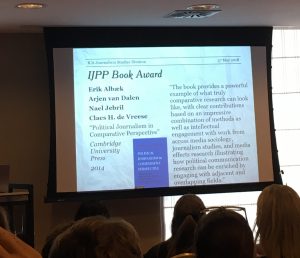 Dr Nael Jebril was recognised for his co-edited book entitled Political Journalism in Comparative Perspectivethat won the Harvard International Journal of Press/ Politics best book award. This is a major honour and awarded by the top journal in the field of media and politics. Dr Jebril received the award with his co-editors, Prof Erik Albæk (University of Southern Denmark), Prof Arjen van Dalen (University of Southern Denmark), and Prof Claes H. de Vreese (Universiteit van Amsterdam).
Dr Nael Jebril was recognised for his co-edited book entitled Political Journalism in Comparative Perspectivethat won the Harvard International Journal of Press/ Politics best book award. This is a major honour and awarded by the top journal in the field of media and politics. Dr Jebril received the award with his co-editors, Prof Erik Albæk (University of Southern Denmark), Prof Arjen van Dalen (University of Southern Denmark), and Prof Claes H. de Vreese (Universiteit van Amsterdam).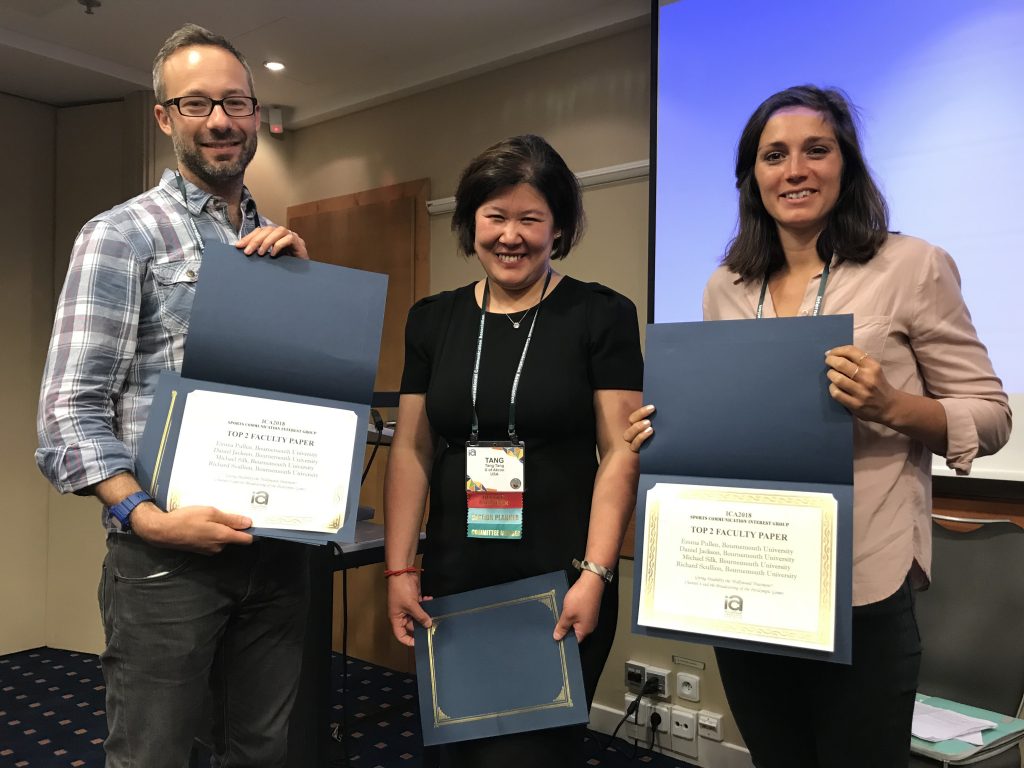


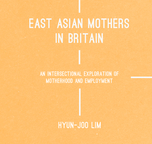

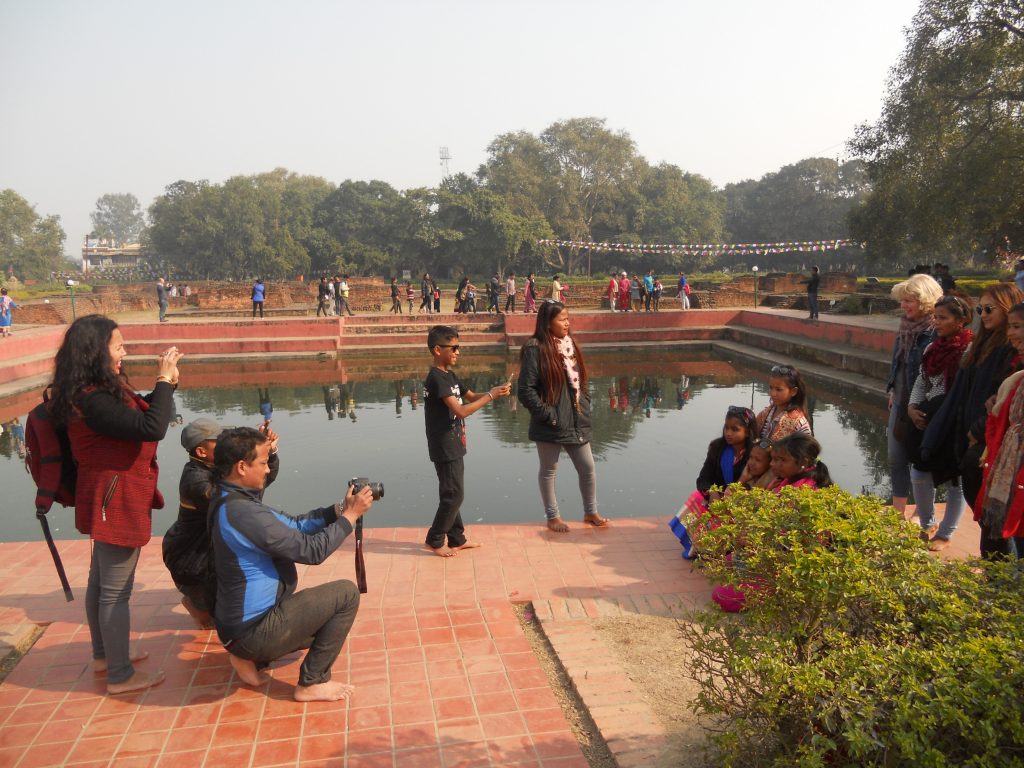

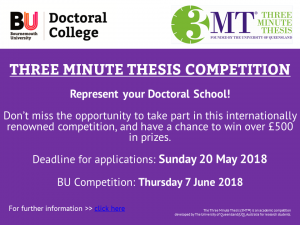

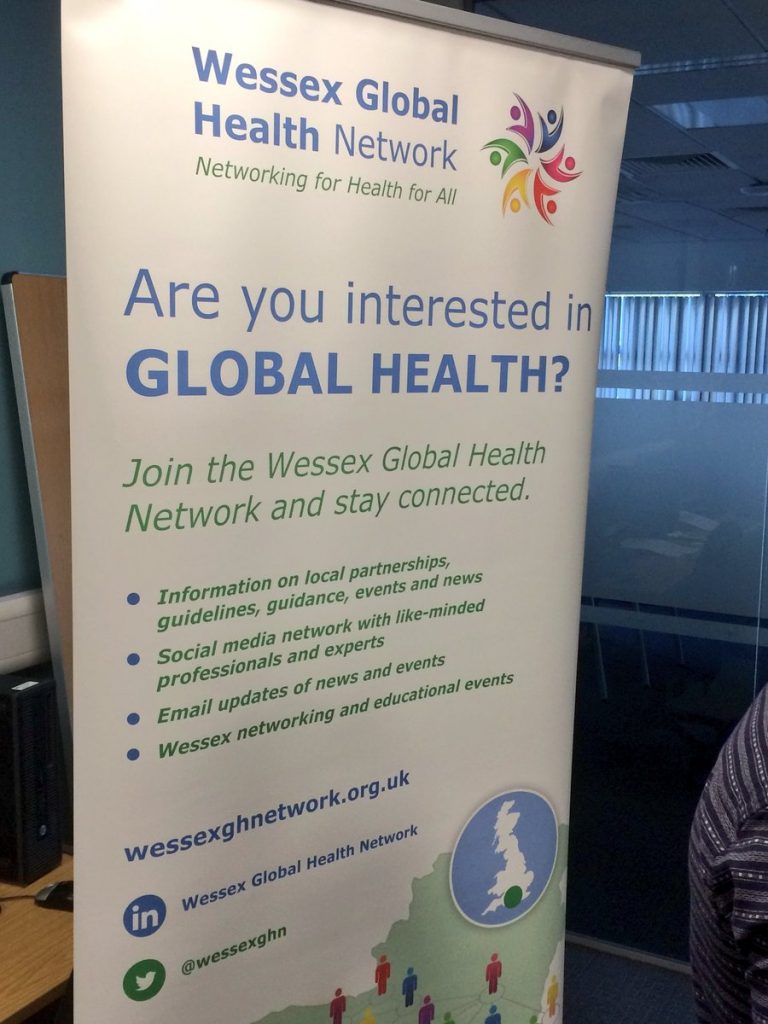
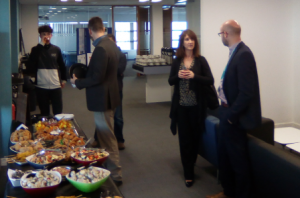
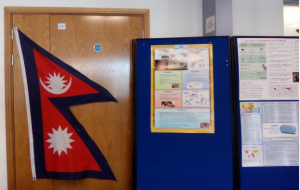
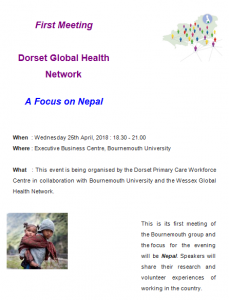
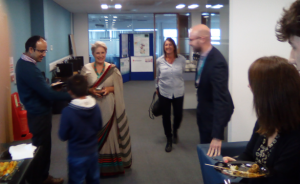
 The Art & Humanities Research Council (AHRC) Research in Film Awards have returned for their fourth year which aim to showcase new and emerging talent in film-making linked to arts and humanities research and celebrate the best of a growing number of high-quality short films (defined as no more than 30 minutes in length) that bring research to a wider public audience.
The Art & Humanities Research Council (AHRC) Research in Film Awards have returned for their fourth year which aim to showcase new and emerging talent in film-making linked to arts and humanities research and celebrate the best of a growing number of high-quality short films (defined as no more than 30 minutes in length) that bring research to a wider public audience.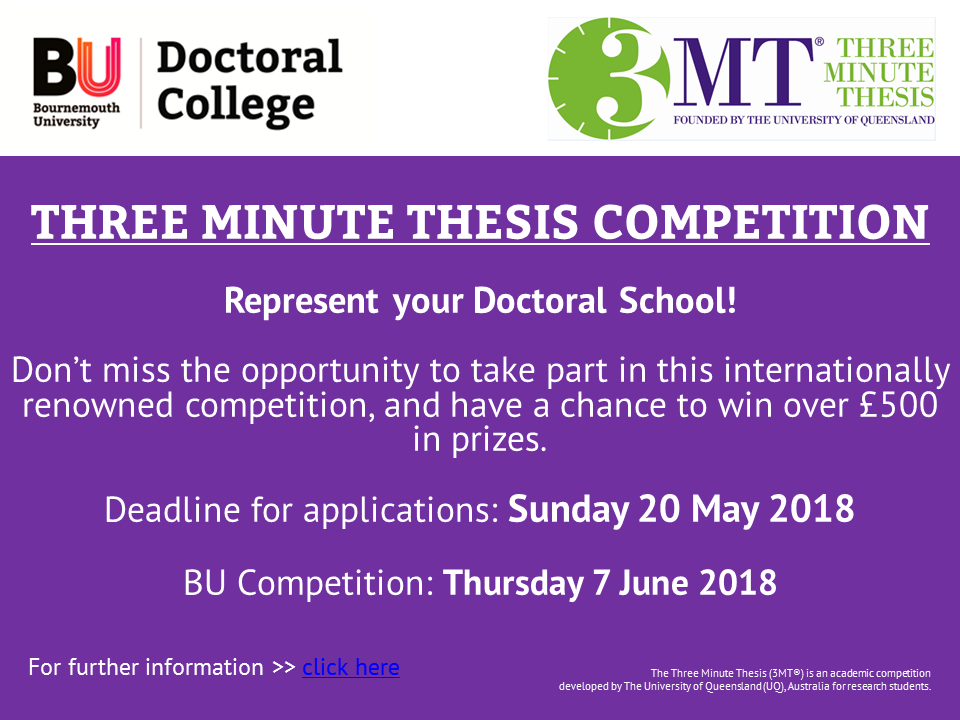
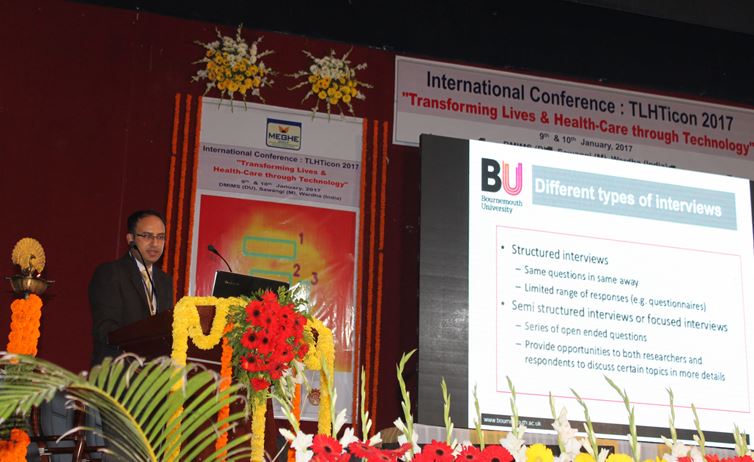
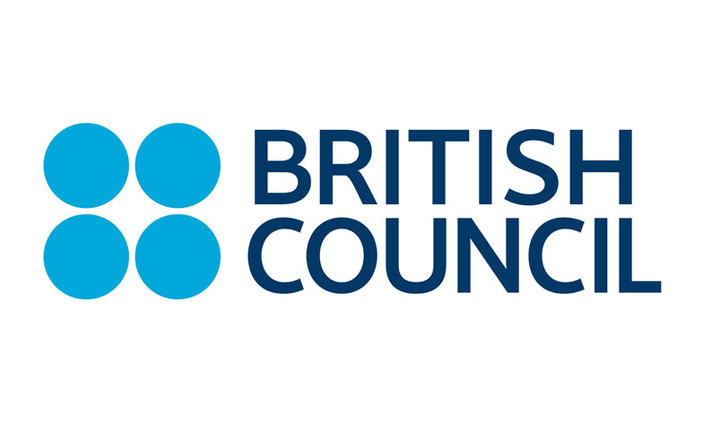













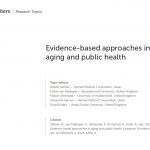 New eBook published in April
New eBook published in April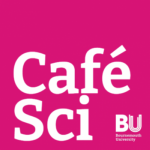 Café Scientifique Tuesday 4 June 2024 – How can we become more resilient in the face of multiple risks and hazards?
Café Scientifique Tuesday 4 June 2024 – How can we become more resilient in the face of multiple risks and hazards? MSCA Postdoctoral Fellowships 2024
MSCA Postdoctoral Fellowships 2024 Horizon Europe News – December 2023
Horizon Europe News – December 2023